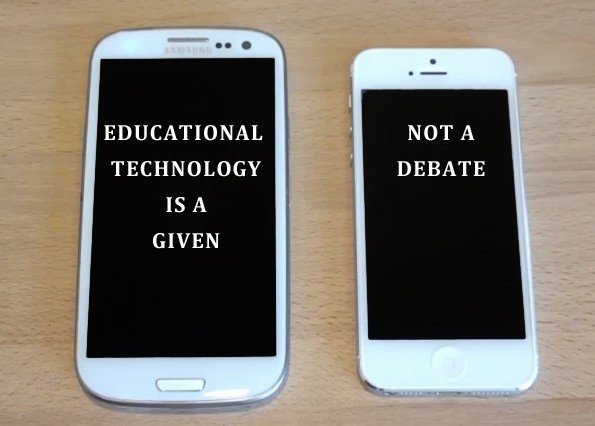Exploring Whether Textbooks Are Becoming Obsolete
Most of us can remember leafing through school textbooks but few of us remember their first or favourite textbook. We generally have fonder memories of trying to find funny words or photos to show our friends when bored.
Recently, these stalwarts of educational systems around the globe appear to be losing the school popularity contest, or as Bill & Melinda put it in their 2019 Annual Letter, “becoming obsolete”.
This is not the first time textbooks have been marked for demolition.
An English newspaper, The Telegraph, wrote a very similar prediction in 2010. Even further back, Thomas Edison took a break from inventing the lightbulb to come up with this remarkable prediction:
“In ten years, textbooks as the principal medium of teaching will be as obsolete as the horse and carriage are now... There is no limitation to the camera.”
That was in 1925 so he was a little off on the timings but his faith in visual learning was not misplaced.
Why Are People So Displeased With Textbooks?
Many people say textbooks are too expensive and give too much power (and profit) to the big publishing houses like McGraw Hill and Pearson.
Others maintain that textbooks are too one dimensional to have such a prominent place in modern education systems. Common gripes include the fact that they are not interactive, can only be used by one person at a time and cannot be updated with new information.
Textbooks also require trees to be chopped down and trucks to pollute the earth before they can help students learn. Textbooks are neither a Personal Computer nor Politically Correct. Issues that didn't exist when most education curriculums were being designed.
So Are The Textbooks A Thing Of The Past?
Not just yet.
Just as TV didn't kill the radio. The printed word will defy computers to remain in education for a while yet. Guttenberg can rest easy for now.
Results from a survey of students across the US + Canada by Student Watch in 2017 present interesting facts. For better or worse, textbooks are still very much dominant in education purchasing.
Why Are Textbooks Still So Sought After?
- The First One Being The Diversity Of Opinions
No matter when you read this, a debate will be raging somewhere about double denim and the best way to educate our youth. The people who run the educational system today grew up with textbooks and many think they did a fine job, thank you very much. - Textbooks Are Simple To Operate
They never run out of power/wifi, and the teacher can be sure they know what everyone is looking at. - No One Likes The Idea Of Kids Staring At Screens All Day
Both the internet and computers are still viewed with suspicion. The dynamic becomes further strained when the children know more about the teaching devices than the teachers. - Not all technology is created equal.
Textbooks create an inherently level playfield. The content, price and “operating system” are much easier to standardize for books than technology.
Does That Mean We Should Stick With Textbooks?
Not exactly.
As Bill Gates says in the Annual Letter:
“Even the best text[books] can’t figure out which concepts you understand and which ones you need more help with. It certainly can’t tell your teacher how well you grasped last night’s assigned reading.”
- The Simplicity Of Textbooks Also Limits Their Capabilities
Some things are just better explained through a video with sound. Beyond the theory, learning CAD or Computer Programming through books alone is impossible. - Textbooks Are A Solo Sport
Shared learning and collaboration should be promoted in schools as fiercely as passing notes in class are currently prohibited. - The World Moves Fast And Things In Print Can Go Out Of Date Quickly
With technology, new ideas and updates can be shared almost instantly without the need for a forest to be felled to print a new edition. - Individual, Paper-Based Exams And Grading Are A Colossal Waste Of Time And Resources
Students can benefit from real-time feedback, and teachers can use automatically generated progress reports to inform and adjust their lesson plans. - Not All Students Are Children And Not Everyone Gets A Free Textbook
In many countries around the world, the cost of higher education is skyrocketing. While there is no one clear solution, as cheaper digital alternatives grow, demand for textbooks will weaken.
As Melinda Gates says in the Annual Letter
“One study found that using open courseware saved students an average of $66 to $121 per course. (Over an academic year, that can add up to $1,000, which can be the difference between staying in school or having to drop out.)”
Seeing the steep price increases in textbooks in the US and figure out that textbooks still have a place in modern education but are not seen as the silver bullet they once were.
What Exactly Is Going To Replace Textbooks?
- Computer And Internet-Based "eLearning" Solutions Are Leading The Race
As you can see from the Google Search Trends report, over the last 15 years people's search for “eLearning” has grown in popularity as the search for “textbooks” has declined.
What Advantages Can eLearning Offer Over Textbooks?
- As Thomas Edison Said 'Videos Are A Great Educational Device'
Multi-media capabilities and multi-person concurrent use spell trouble for lengthy photo-based walkthroughs and lecture transcriptions. - Once Finished, Textbooks And Conversations Are Often Filed Away And Forgotten
Cheap, intuitive eLearning software can be used to capture, share and store information. With teacher moderation, this software can be used in parallel with exams to monitor progress and quickly return to old lessons. - The Benefits Of Digital Tests And Automated Grading Are Self-Evident
eTeaching programmes are getting better at delivering personalised learning paths and progress feedback. Real-time feedback is generally better than delayed, handwritten teacher assessments.
Final Assessment
For classroom-based education, the textbook will continue to dominate in the more "stable" subjects such as History, Literature, and Philosophy. They are an optional extra in computer-based subjects such as Programming, Design and Computer Science.
The interesting subjects are ones like Maths, Sciences, and Languages that fall in the middle. Currently, textbooks are still in play but computer-based software is gaining ground fast.
AI is a big trend to keep an eye on here. It will move the software from a simple automation device to personalised tuition. This will be invaluable for subjects that involve a lot of task repetition in slightly different formats to judge progress e.g. languages.
For College/University-based education, it is hard to imagine students buying textbooks at the same rate in 10 years time. There will be more demands for the library wifi code than book reservations as laptops become cheaper and eLearning software more ubiquitous.
Currently, both eLearning programmes and textbooks are still only sidekicks to the hero of the story. Teachers remain the backbone of education systems. Now, they simply have a wider array of tools at their disposal.
Final Prediction
With the AI “rise of the machines” hype cycle nearing its peak, it won’t be long before we see a rise in Are Teachers Obsolete? articles.
Maybe even from Bill & Melinda once they have seen off textbooks.










